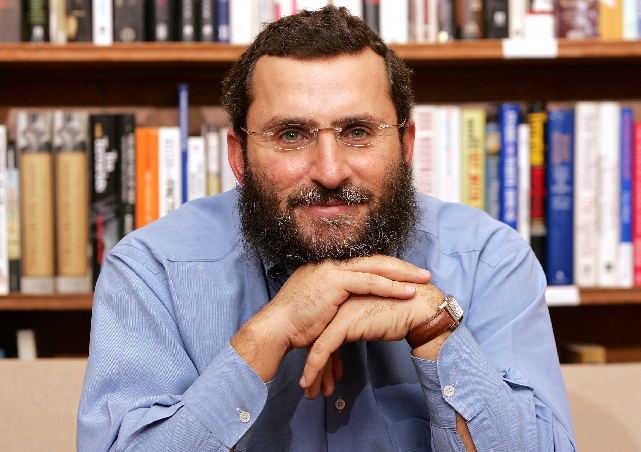 |
| Rabbi Shmuley Boteach |
"British influence in the world has, in contrast, gone off a cliff over the last century. And while there are many factors in this decline, I would argue that the new, militant atheism that is becoming characteristic of Britain is a key reason. Atheism is a philosophy of nihilism in which nothing is sacred and all is an accident. While it has some brief, flashy moments, life is purposeless and meaningless. There is no soul to illuminate and no spirit to enliven—just dead, decadent flesh. Human love is a prank played by our genes ensuring the sexual propagation of the species, and poetry and faith are shallow distractions masking the inevitability of our certain demise. Men are insemination machines incapable of ever being truly faithful and women are genetically programmed to seek out billionaire hedge-fund managers, so much the better to support their offspring."Rabbi Boteach believes that a key religious difference between the U.S. and Great Britain is that the British still have a state church while we have an active, competitive religious marketplace where good preachers attract crowds on a Sunday morning and poor ones don't.
It's an interesting thesis but just a little too neat and tidy to be entirely persuasive. Although Britain does still have a state church system, for example, it has also long had a competitive religious marketplace, one that gave birth to Methodism in England and several different Presbyterian denominations in Scotland. And Britain began its decline as a world power as far back as the 1920s when religious faith still played a relatively important part in British society. When we look at various social comparative statistics we find that Britain does have a higher rate of crime than the United States (source); but American divorce rates are higher, which is explained only in part by higher marriage rates (source). And, interestingly enough, the British rank somewhat higher in terms of general happiness (source).
The point is that it is doubtful that our religions and a belief in God as such makes us necessarily a better nation. In ancient times, everyone believed in God (or gods), and every society was highly religious; but the world was much more violent than it is today. While the so-called new atheist authors are wrong in drawing a positive correlation between the decline in religiosity and a decline in social violence, we have to be careful on the other side not to make simplistic assumptions about the power of religion and certain theistic doctrines to make us better. The prophets of the Old Testament consistently judged the forms of religiosity of their day as detracting from the true worship of God. The heart of true religious practice for them meant practicing justice and mercy and walking humbly with God (see Micah 6:6-8). At the end of the day, it is the quality of our faith that matters rather than the fact that we are merely religious.